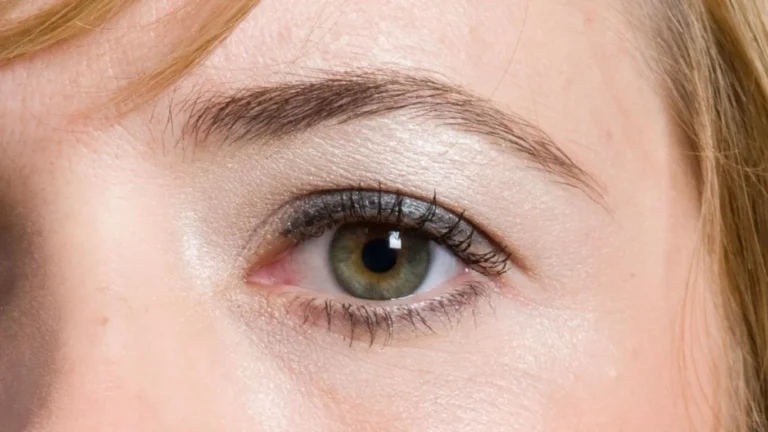Best Juices for Acid Reflux Relief That Actually Soothe Your Stomach
When I first started dealing with acid reflux, I honestly didn’t think something as innocent as juice could stir up so much stomach drama. But trust me, I’ve had my fair share of sips that ended in regret. So if you’re wondering whether your favorite juice is helping or hurting your reflux, you’re not alone. Let’s explore what’s really happening behind the glass and which juices actually soothe rather than spark the burn.
What Is Acid Reflux and Why Juice Matters

Acid reflux, also known as gastroesophageal reflux disease (GERD) when chronic, is that annoying condition where stomach acid splashes back into the esophagus. The result? Burning sensations in the chest, a sour taste, bloating, and sometimes a sore throat that just won’t quit. I’ve learned that what we drink is just as important as what we eat—especially when it comes to juice.
Many people assume juice is always a healthy choice, but certain ones are surprisingly acidic and can actually trigger or worsen reflux symptoms. Others, though, are packed with soothing properties and alkalizing compounds that can support digestion and reduce inflammation.
Can Juice Help or Worsen Acid Reflux?

Let’s get real: not all juice is created equal when it comes to acid reflux. In fact, some of the most popular ones—like orange, grapefruit, and tomato juice—are straight-up triggers. They’re highly acidic and can irritate the lower esophageal sphincter (LES), the valve that’s supposed to keep stomach acid where it belongs.
But the right juices? They can be incredibly helpful. Some work by reducing inflammation in the gut, others act as mild alkalizers that help neutralize stomach acid, and a few—like cabbage juice—even have protective effects on the stomach lining. The key is knowing which ones are your gut’s best friends versus the frenemies hiding in your fridge.
Best Juices for Acid Reflux Relief (Overview)

Based on personal experience and a growing body of nutrition science, here’s a sneak peek at the most reflux-friendly juices you might want to consider sipping:
- Aloe vera juice – Naturally soothing and anti-inflammatory
- Apple juice – Mild and easy on the stomach (especially from red apples)
- Cabbage juice – Packed with gut-healing properties
- Celery juice – Alkalizing and hydrating
- Barley grass juice – Gentle detox for the digestive system
- Cranberry juice – Controversial but tolerable for some if unsweetened
- Pineapple juice – Enzyme-rich but needs to be consumed in moderation
- Pickle juice – Surprisingly beneficial for a few people, though not for everyone
Of course, not everyone responds the same way. Just because celery juice worked wonders for me doesn’t mean it’ll do the same for you. It’s a game of gentle trial and error, but starting with low-acid options is a good bet.
Detailed Benefits of Specific Juices

Aloe Vera Juice
This one is a superstar. Aloe vera isn’t just for sunburn—when properly processed (decolorized to remove aloin), it can help soothe an irritated esophagus and reduce inflammation in the digestive tract. I started drinking small amounts of aloe vera juice in the morning, and let’s just say my mornings became much less acidic. Just be sure to pick a certified safe brand and don’t go overboard—too much can act as a laxative.
Apple Juice
Red apples tend to be less acidic than green ones, and fresh apple juice made from red varieties like Fuji or Gala can be a safe and soothing choice. It’s mild, slightly sweet, and can help coat the stomach. But avoid store-bought versions loaded with added sugars or preservatives. Try pairing it with a GERD-friendly snack to further buffer stomach acid.
Cabbage Juice
Okay, I know what you’re thinking—cabbage juice? Really? I thought the same. But turns out, cabbage is full of L-glutamine, an amino acid that supports gut lining repair. According to research from the NIH, it may help improve mucosal integrity. Just go easy at first—it’s powerful stuff and can cause gas if your gut isn’t used to it yet.
Celery Juice
This trendy green drink isn’t all hype. Celery juice is naturally alkaline and hydrating, which makes it gentle on the stomach and great for diluting acid. When I started blending it fresh in the mornings, I noticed fewer flare-ups—especially if I drank it on an empty stomach. A tip? Strain it for a smoother texture and easier digestion.
Barley Grass Juice
Not the most common in everyday fridges, but barley grass juice is loaded with enzymes, antioxidants, and minerals that can support digestive health. It’s particularly helpful for people trying to rebalance their gut after years of reflux issues. Just like cabbage juice, start slow and dilute it with water or mix it into smoothies at first.
Cranberry Juice (Controversial)
This one gets mixed reviews. Pure, unsweetened cranberry juice can be okay for some, thanks to its anti-inflammatory and antioxidant properties. But it’s also on the acidic side, so for many (including me), it’s a once-in-a-while treat. Definitely avoid the sugary cocktail versions.
Pineapple Juice (in Moderation)
Another tricky one. Pineapple contains bromelain, an enzyme that helps break down proteins and potentially reduce inflammation. I’ve had good luck with very small amounts of fresh pineapple juice after meals, but it can backfire if I overdo it. Listen to your body.
Pickle Juice (Rare Cases)
This might sound completely backwards, but some people swear by sipping small amounts of pickle juice to stimulate digestion and balance stomach pH. I personally couldn’t get past the saltiness, but if you’re feeling adventurous, give it a shot in tiny amounts. Choose ones without garlic or artificial coloring.
Before you overhaul your fridge, it’s worth cross-checking your juice choices with broader GERD-friendly habits. You can explore more food solutions in our GERD diet plan pillar guide, which dives deep into meal timing, food combinations, and sustainable relief.
Juices to Avoid with GERD

Not all juices play nice with acid reflux. I learned the hard way that a glass of orange juice in the morning feels great going down but hits hard later. If you’re prone to reflux, these juices might be the culprits behind your symptoms:
- Orange Juice – High in citric acid, which relaxes the LES and increases acid production.
- Grapefruit Juice – Extremely acidic and can cause severe irritation for many GERD sufferers.
- Lemon Juice – Healthy in moderation for some, but often too acidic for sensitive stomachs.
- Tomato Juice – A double whammy of acidity and natural compounds that aggravate reflux.
- Mixed Fruit Cocktails – Usually loaded with added sugars, artificial flavors, and high-acid fruits.
If you’re unsure about a particular juice, check its pH. Anything below 4 is usually too acidic for a reflux-friendly diet. You can also refer to our guide on GERD-friendly food and drink swaps for alternatives that won’t upset your system.
When and How to Drink Juice for Acid Reflux

It’s not just what you drink—it’s how and when you drink it. I used to gulp down juice with big meals, thinking it would aid digestion. Turns out, that combo made things worse. So here’s what I’ve learned works best:
- Drink slowly – Take small sips and don’t chug it all at once.
- Avoid with heavy meals – Juices are better between meals or at least 30 minutes before eating.
- Watch the temperature – Lukewarm or slightly cool juice is gentler on the stomach than icy cold drinks.
- Dilute if necessary – Mix with filtered water if it feels too strong or concentrated.
Morning seems to be the best time for many people, especially when paired with light, non-acidic meals like GERD-friendly breakfast options. I usually sip celery or aloe vera juice right after waking up, followed by something soft like oatmeal or a banana.
Tips for Making Your Own Reflux-Friendly Juice

If you’re into DIY like I am, making your own juices at home gives you full control over the ingredients. No preservatives, no hidden sugars, just pure, gut-friendly goodness. Here’s how to get started:
Choose the Right Produce
Stick with low-acid, high-water-content veggies and fruits. Great options include:
- Cucumbers
- Celery
- Red apples
- Carrots
- Leafy greens like spinach or romaine (avoid kale early on)
Blend or Juice?
Both methods work, but I prefer juicing because it removes most of the fiber, making it gentler on digestion. If you blend, consider straining the juice through a fine mesh sieve or nut milk bag.
Pair Wisely
Sometimes combining certain ingredients increases their soothing effect. One of my go-to recipes:
- 1 stalk celery
- 1/2 cucumber
- 1/2 red apple
- 1 tsp aloe vera juice (optional)
Blend, strain, sip slowly. It’s refreshing, calming, and never triggers my reflux.
Storage Tips
Fresh juice oxidizes quickly. Drink within 24 hours, and store in an airtight glass container in the fridge. Adding a few drops of lemon might preserve it longer—but test your tolerance first since lemon can be acidic.
Juicing doesn’t have to be complicated or expensive. Just being mindful of your ingredients and timing can make a huge difference. I’ve personally found a lot more freedom in my diet once I stopped treating juice like a “healthy by default” beverage and started listening to my gut—literally.
To explore even more soothing food options, don’t miss this essential article on low-acid fruits for GERD relief, a perfect match for your homemade juice blends.
Final Thoughts

Finding juice that actually helps acid reflux instead of making it worse can feel like trial by fire—trust me, I’ve been there. But once you understand your body’s response and learn to choose wisely, juice can become part of your healing toolkit, not your heartburn trigger.
My own journey with reflux taught me that the smallest changes—like switching from orange juice to celery or sipping aloe on an empty stomach—can make a massive difference. And no, it doesn’t mean giving up flavor or variety. It just means being strategic and a little experimental until you figure out what soothes your digestive system best.
If you’re ready to expand your juice-friendly lifestyle into broader daily habits, I highly recommend starting with this GERD lifestyle guide—a powerful resource I wish I had years ago.
Frequently Asked Questions (FAQ)

Is tea acidic like some juices?
Some teas are acidic, like black tea and certain flavored varieties. However, herbal teas such as chamomile, ginger, and licorice root are gentler and may even help soothe reflux. If you’re curious, ginger tea is one of my go-tos when juice doesn’t feel right.
Can I drink juice before bed?
Generally, no. Drinking any liquid—especially acidic or sugary juice—right before lying down increases your chances of nighttime reflux. If you’re craving something light, opt for a warm herbal tea instead. Give your stomach at least 2 hours before bedtime after drinking.
Is store-bought juice safe for reflux?
Most store-bought juices are heavily processed, sweetened, and often too acidic. Look for cold-pressed options with no added sugars or preservatives. But honestly, homemade juice gives you the best shot at controlling acidity and quality. Your gut will thank you.
Can I mix multiple juices together?
Absolutely—just make sure you’re not combining multiple acidic ingredients. A mix of celery and cucumber with a touch of red apple is my personal favorite. Try experimenting slowly and keep a journal if you’re sensitive to certain combos.
What about smoothies instead of juice?
Smoothies are a great alternative because they include fiber, which slows digestion and may prevent reflux. Just be cautious with fruit choices and skip citrus or chocolate-based ingredients. You can find some gentle inspiration in this acid reflux-friendly smoothie guide.
Is watermelon juice okay?
Yes! Watermelon is low in acid and high in water, making it refreshing and gentle on the stomach. Just make sure it’s fresh and unsweetened. Blend it up and enjoy chilled—but not ice-cold.
Do I need a juicer or can I just use a blender?
You can use either, honestly. I started with just a blender and a strainer. Juicers give a smoother product, but a high-speed blender plus a mesh bag or fine sieve does the trick for most recipes.
How do I know which juice works for me?
Everyone’s digestive system is different. Start with small servings of low-acid juices and note how your body reacts. You can even track symptoms using a simple reflux journal or app. Over time, patterns will show up.
If you’re managing reflux through lifestyle, food, and natural remedies, check out our trusted guide on natural remedies for GERD for more supportive tips that align with your juice-based strategies.

Camellia Wulansari is a dedicated Medical Assistant at a local clinic and a passionate health writer at Healthusias.com. With years of hands-on experience in patient care and a deep interest in preventive medicine, she bridges the gap between clinical knowledge and accessible health information. Camellia specializes in writing about digestive health, chronic conditions like GERD and hypertension, respiratory issues, and autoimmune diseases, aiming to empower readers with practical, easy-to-understand insights. When she’s not assisting patients or writing, you’ll find her enjoying quiet mornings with coffee and a medical journal in hand—or jamming to her favorite metal band, Lamb of God.






